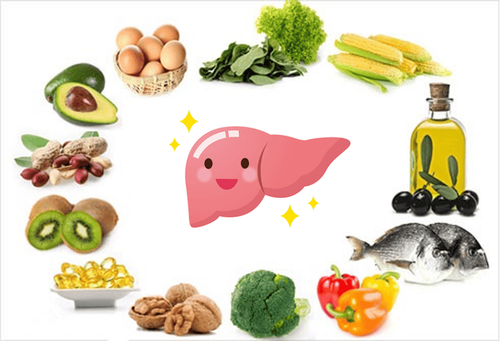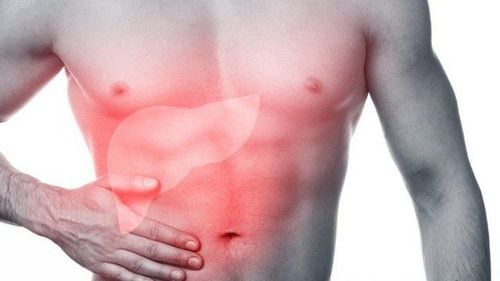This is an automatically translated article.
Drinking tea after eating has always been a controversial topic. There are some studies that report that drinking tea is good for digestive health, but others have suggested that the caffeine in tea interferes with the absorption of various nutrients in food. So should you drink tea after eating?
1. The benefits of tea for the digestive system
Several studies have proven that drinking tea helps aid digestion by reducing bloating in the stomach. But it should be noted that not all types of tea have the effect of supporting the functioning of the digestive system. Green tea and herbal teas like ginger tea are said to be the best for aiding digestion because they contain large amounts of antioxidants and polyphenols.
Tea helps the digestive system work more efficiently by stimulating the production of saliva, bile and gastric juices for better digestion. It also contains antioxidants that act as powerful anti-inflammatory agents that have been found to reduce some unpleasant gastrointestinal symptoms. Green and herbal teas contain polyphenolic compounds specifically catechins, which increase the activity of digestive enzymes, and pepsin, which helps break down proteins in the stomach.
Green tea is often known for its many great benefits to human health. The beneficial effects of green tea are due to the presence of compounds known as catechins, namely epicatechin, epicatechin-3-gallate, epigallocatechin and EGCG. These compounds have been shown to help fight cancer, boost metabolism, boost brain activity and improve digestive health, which in turn can help with weight loss.
In addition, this green tea is also rich in potassium and caffeine. Some green teas on the market are even fortified with nutrients like vitamins A, B, C, manganese, zinc, and chromium. Green tea contains 99.5% water and is considered the second richest beverage after water. Whenever buying green tea, you should choose tea leaves instead of tea bags. Brewed green tea contains more nutrients than tea made from tea bags.
Is drinking iced tea good? Iced tea is a beverage that is increasingly popular because of its refreshing taste. Iced tea also contains many nutrients that are beneficial for the functioning of the digestive system and other organs in the body.

Giải đáp có nên uống trà sau khi ăn?
2. Should you drink tea after eating?
Tea is the best natural remedy for some diseases. But many people always believe that drinking tea after meals can be harmful to health. Although this is a controversial topic, studies have shown that drinking tea is very good for the digestive system and stomach. Drinking tea after meals has the effect of reducing gas and reducing symptoms of bloating in the stomach. But, not all teas are the same.
On the other hand, some documents suggest that the caffeine content in tea can interfere with the absorption of nutrients in the digestive system. Several studies have shown that phenolic compounds present in tea interfere with iron absorption by forming iron complexes in the intestinal lining of the stomach. It is recommended that people choose foods rich in iron and vitamin C if they want to drink tea with meals to offset the hindering effect of green tea on iron absorption. Therefore, drinking tea after eating or while eating is not beneficial for patients with iron deficiency because the tannins present in tea interfere with the absorption of iron in the body. It has also been found that drinking tea with meals reduces the availability of catechins to the body, compounds found in tea and playing an important role in various physiological structures. Similar to other liquids, green tea also has the ability to dilute digestive juices and slow down the breakdown of food.
Another ingredient in green tea is tannin, which is known for its ability to interfere with the absorption of many minerals including iron, zinc and calcium (slowing absorption). The result is deficiencies in these minerals, and many other health complications. In some people, tannin can also cause constipation. Therefore, people at risk of being deficient in these minerals should limit drinking tea immediately after a meal. Another ingredient found in tea is caffeine. It is a well-known fact that increased caffeine consumption can lead to insomnia. For people with stomach ulcers, caffeine can be harmful as it is known to aggravate the condition. It can also trigger blood pressure and heart rate.

Trà là phương thuốc tự nhiên tốt nhất cho một số bệnh
3. When is the right time to drink tea?
To get the maximum health benefits from green tea, it is important to drink tea at the right time. Studies suggest that the best times to drink green tea are in the morning and before a workout. A cup of green tea is the best way to start the day.
Like coffee, green tea also contains some amount of caffeine and L-theanine. Both of these things combined can help improve your mood and raise your concentration levels. If your goal is to burn fat, drinking green tea before a workout is best for you. Some research shows that doing this can increase fat burning during exercise.
Coffee and tea should be avoided at least an hour before and after a meal. Although tea and coffee help reduce muscle and mental fatigue, we need to drink it in moderation. Reports regarding the dietary guidelines also recommend that people with heart-related conditions cut back on coffee consumption as it is known to raise blood pressure and induce various forms of arrhythmias. heart .
Please dial HOTLINE for more information or register for an appointment HERE. Download MyVinmec app to make appointments faster and to manage your bookings easily.













